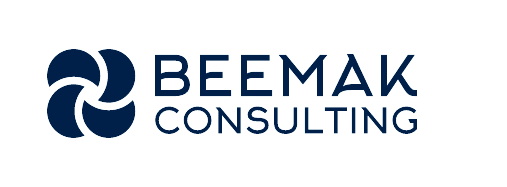Why Beemak Consulting Is The Right Fit For Your Business
In Georgia, as in most states, there are several different business entity structures to choose from. The best structure for your business will depend on a number of factors, including your liability exposure, tax implications, and ownership goals.
Here’s a quick overview of the most common business entity types in Georgia:
- Sole Proprietorship: This is the simplest and most common business structure. A sole proprietorship is an unincorporated business owned by one person. The owner is personally liable for all business debts and obligations.
- Partnership: A partnership is a business owned by two or more people. Partners share in the profits and losses of the business according to the partnership agreement. General partners are personally liable for all business debts and obligations.
- Limited Liability Company (LLC): An LLC is a popular business structure that offers limited liability protection to its owners, called members. This means that the members’ personal assets are generally not at risk for business debts and obligations. LLCs can have one or more members and can be taxed as a sole proprietorship, partnership, or corporation.
- Corporation: A corporation is a legal entity separate from its owners, called shareholders. Shareholders are generally not personally liable for the debts and obligations of the corporation. Corporations are more complex to set up and maintain than other business structures, but they offer some significant advantages, such as the ability to raise capital by selling stock.
Which Business Entity is Right for You?
The best business entity for you will depend on your specific circumstances. Here are some factors to consider:
- Liability protection: If you are concerned about protecting your personal assets from business liability, then an LLC or corporation may be a good option.
- Taxes: Business entities are taxed differently. Sole proprietorships and partnerships are pass-through entities, meaning that the business’s profits or losses pass through to the owners’ personal tax returns. LLCs can elect to be taxed as pass-through entities or as corporations. Corporations are taxed on their profits at the corporate tax rate, and shareholders are also taxed on the dividends they receive from the corporation.
- Ownership and management: If you are the sole owner of your business, then a sole proprietorship may be the simplest option. If you have multiple owners, then a partnership, LLC, or corporation may be more appropriate.
- Complexity: Sole proprietorships and partnerships are the simplest business structures to set up and maintain. LLCs and corporations are more complex, but they offer some significant advantages.
Beemak Consulting: Your Bookkeeping and Accounting Partner
Once you have chosen the right business entity for your business, you will need to find a qualified bookkeeping and accounting service to help you manage your finances. Beemak Consulting is a full-service bookkeeping and accounting firm located in Marietta, GA. They specialize in helping small businesses with a variety of financial tasks, including:
- Bookkeeping and accounting
- QuickBooks management
- Tax preparation and planning
- Payroll processing
Beemak Consulting can help you choose the right business entity for your business and ensure that your finances are in order.
Why Choose Beemak Consulting?
Beemak Consulting has a team of experienced and qualified professionals who can provide you with the financial guidance you need to succeed. They offer a variety of services to meet the needs of your business, and they are committed to providing their clients with excellent customer service.
If you are looking for a bookkeeping and accounting service in Georgia, contact Beemak Consulting today.
